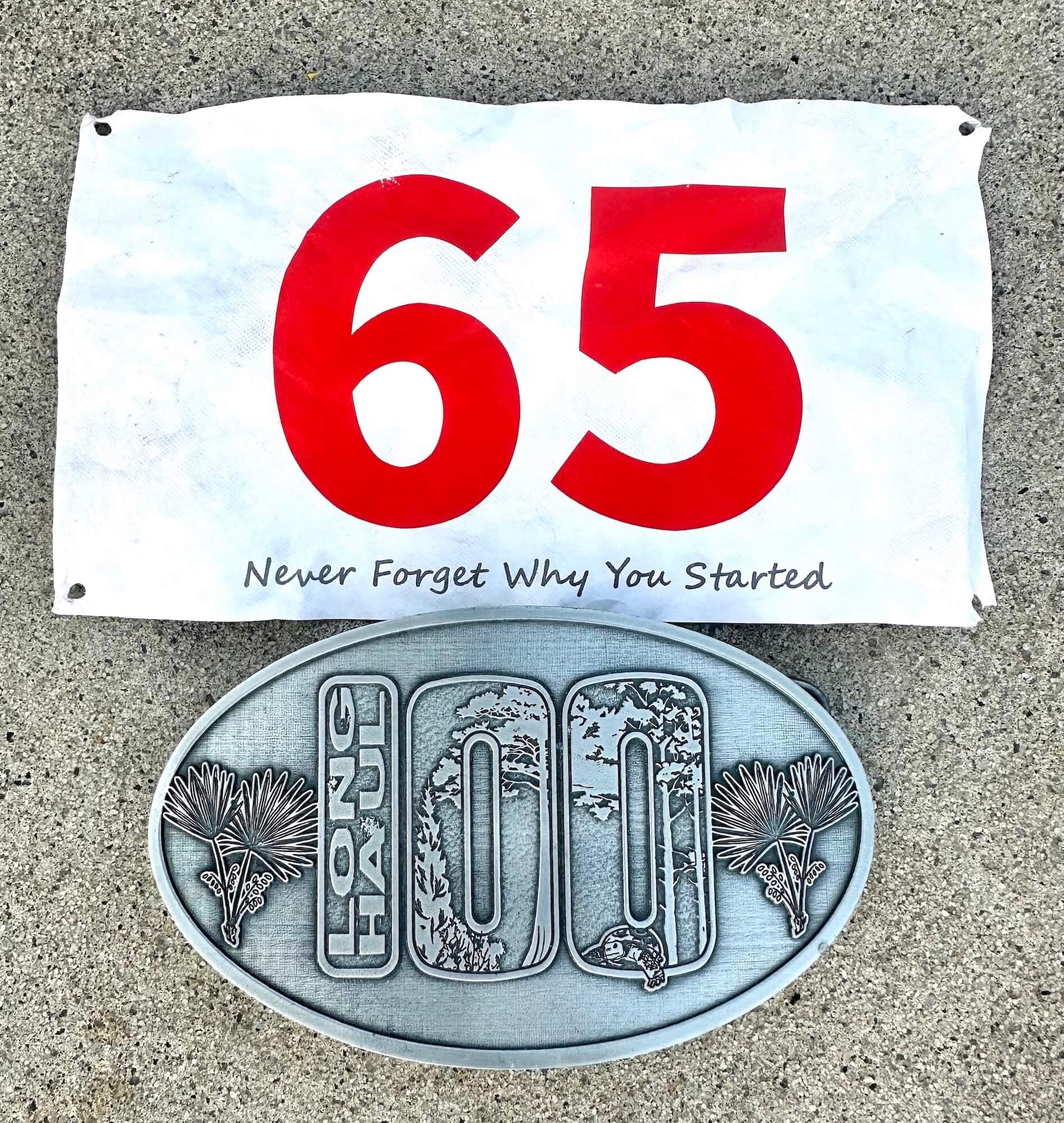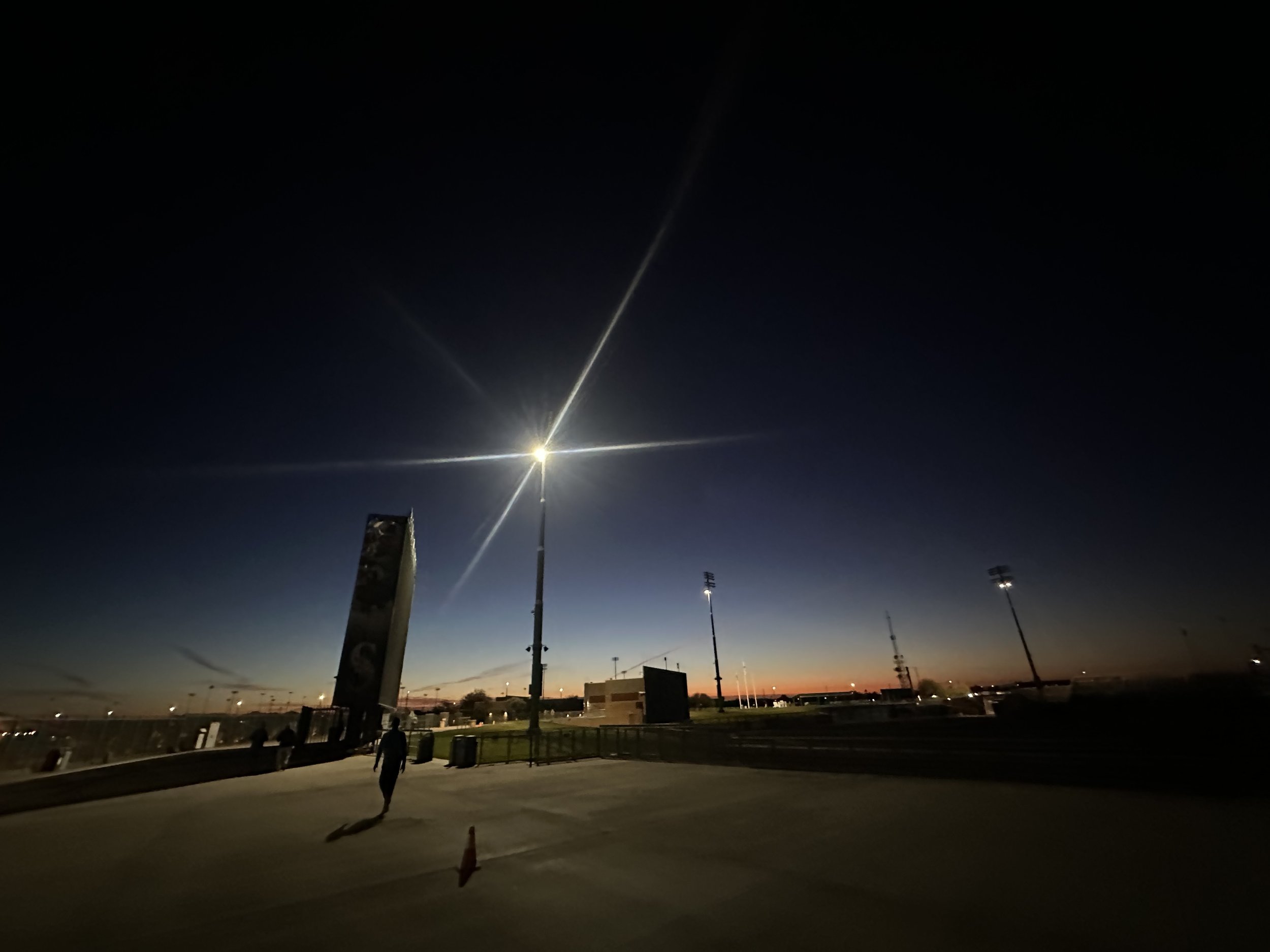The Blog
Tips, ideas, and true stories to build your ultra confidence.

When the High Fades and the Blues Hit
Several years ago, I ran three 100-mile races on three consecutive weekends—for the thrill of pushing myself—and it went great.
Afterward, I should’ve felt like a badass. Proud. Accomplished. Satisfied.
Instead, I was disappointed.
Not in the races—they’d gone well. Not in my body—it had handled it brilliantly. But somewhere deep inside, I was just… sad. There was no fourth race waiting for me.

How to Choose Your First 100-Mile Race
“I’m considering doing my first 100 but overwhelmed with choosing the first one. I know some of what I don’t want. Any tips for choosing the first one?”
Last week, I covered the biggest mistake runners make when choosing their first 100-mile race - going for the “easiest.”
The strategy doesn’t do you any favors in the long run. Among other things, you become dependent on finding easy races.
So today, I’m covering how to choose a first 100 with the same long term goal in mind - helping you become the most confident ultrarunner you can be.

How NOT to Choose Your First 100-Mile Race
“You’ve run a lot of them - what’s a good first 100?”
When someone asks me this question, they’re really asking, “What’s an easy first 100?”
One that looks like adventure in an expected way where a finish is all but assured. Scenery’s a plus but not required.

How to Love Not Knowing If You’ll Finish
What bothers us most before a race isn’t the distance, the course, or the cutoffs—it’s the uncertainty.
“Have I trained enough? Will I be ready? Can I handle it? Will I make the right choice when I want to quit?”
And the ultimate question: “Will I finish?”

You Don’t Have to “Beware the Chair”
It’s a tip you regularly hear about ultramarathons—and we laugh because we’ve all been there. You roll into an aid station late in the race, exhausted. Your muscles are stiff, your feet are blistered, you’re cold and dirty, and there it is: an empty chair by the warm fire, surrounded by a few motionless runners wrapped in blankets.
Sitting down would feel so good—like heaven. Just a short moment off your feet while you rummage through your drop bag. Just a quick rest to warm up. But you also know the risk. Once you lower yourself into that chair, you risk losing what little motivation you have left. The longer you sit, the less likely you are to get back up and go.
That’s the dangerous lure of the chair. It seems harmless, but it can end your race.

Think You’re Not Ready? You Might Be Looking At It All Wrong
Worried you won’t be ready on race day?
You’re not alone. I hear from many runners who feel this way, and it’s understandable. An ultra is a big deal—you don’t do one every day, and you want to perform your best and have the race you’ve dreamed of. You’ve invested countless hours and miles into training, but still: What if I haven’t trained enough? Or trained right?
You can’t stop thinking about the runs you missed, the tough long runs that needed to go well but didn’t, and how you don’t feel as strong as you should. There’s no proof that your training is paying off, and with race day approaching, you’re running out of time to fix it.

What If the Worst Happens on Race Day?
There are so many things that could ruin your race.
But what if the worst actually happens?
Imagine this: You invest months of training, effort, and money into a race that means the world to you. Everything is going smoothly—until the day before the race. You wake up with your head pounding, body aching, throat on fire, and nose completely clogged. Even breathing too deeply sets off a coughing fit that leaves you exhausted.
The Assumption: “I feel awful—I can’t finish like this. My race is ruined.”

“A” Race Traps
As a mindset and strategy coach, I often work with runners who feel immense pressure around their “A” race.
An “A” race is the one that’s incredibly important. It’s often the only big race that year - like the only 100-mile race of the year or a lottery race. They structure other races around it, spend months training for it and often have crew and pacers lined up for the event, adding to the weight of its significant.
There’s nothing wrong with having an A race. In fact, narrowing your focus to a single race—even if it’s not an A race but simply the next race ahead—can be incredibly beneficial. I highly recommend it.

Play Your Own Game
Are you doing ok in ultrarunning—training, racing—but feeling unfulfilled and not sure why?
Wondering if this is just how it is, that losing your love for the sport is inevitable? Or whether it’s something you can fix?
I’ve been there, and fixing this was a game-changer for my success. It can be for yours, too.
When I started ultrarunning in the late 1990s, I was lucky to have a small group of friends to train and race with. We were the only ultrarunners in our state.
One year, a bunch of us decided to run Leadville 100. We traveled together, shared a house—and all DNF’d.

Why Race When the World is On Fire?
Last week, I had a session with a client preparing for a big, exciting race—one that’s outside his usual routine. The goal he’s set for himself is ambitious and deeply personal. It’s going to take a lot of work, but he’s committed to making it happen.
Or at least, he was.
In our session, he voiced something I’d already noticed in other runners—it’s hard right now to stay motivated about race goals.
With so much chaos and bad news coming at us nonstop, fresh worries seem to appear daily, and the uncertainty ahead feels overwhelming. It’s hard to know which threat to focus on before another takes its place.

Going to Miss Your Goal? Your Thinking Determines What Happens Next
After five grueling laps at Long Haul 100, I limped into the start/finish aid station, exhausted and frustrated. The first two laps (32 miles) felt great. On the fourth loop (50 miles) at night, I slowed more than expected, but Lap 5 in the deepest night took it out of me. I was falling asleep, barely moving, convinced it had taken twice as long as the others.
The race has a 32-hour cutoff, but my goal was a sub-30 finish. I’d been running better than I had in years and had a nice 70 mile training run a few weeks earlier at Across the Years. But I’d also spent too much time at aid stations, planning to make it up later—and hadn’t. Now, stiff, hurting, chafing, and likely dealing with blisters, I knew I wouldn’t be running a fast-enough final lap to make up for all the slowness. Just the thought being out for hours on yet another lap was daunting. Dropping would have been a reasonable option.
But here is where I used the Mindshift Process I teach my clients to turn my thinking into a powerhouse. I thought about the decision to do the last lap.

Train Like a Champion: How to Motivate Yourself Without Self-Criticism
Training in winter can be tough, even when you have a spring race ahead.
Despite your best intentions, getting out the door in cold, dark, wet weather for hours of running isn’t easy. Motivation is lacking.
Many runners, when struggling to stay on track, make a common mistake: using self-criticism to force themselves to train.
![[MVP Post] Race More, Burn Out Less](https://images.squarespace-cdn.com/content/v1/5fa85362f59e260b96bf42c1/1674626959436-38ILE2YCZL2AGU2F571Z/Susan+Donnelly+Race+More+Burn+Out+Less-2.jpeg)
[MVP Post] Race More, Burn Out Less
Last week, two separate clients faced wanting to race a race…but not wanting to.
One was burned out and the other was worried about getting there.
Two different runners, two different races, two different race schedules, same assumption: you have to race races.

Goal Creep
Success in a race starts with setting the goal—and how you set it can make all the difference.
It sounds simple enough, but this is often where things go wrong, especially with something I call Goal Creep.
No, it’s not a monster hiding under the bed—it’s like scope creep in a construction project. What starts as replacing a kitchen countertop somehow turns into a full kitchen remodel.
Goal Creep looks like this: you start with a manageable goal. Let’s say it’s hitting the 30-hour cutoff for a 100-mile race. When people ask about your goal, you confidently say, “30 hours—I just want to finish.”

You Have Greatness
At Across the Years, I ran a few miles with a friend and asked about his recent races. To my surprise, he raved about the honor of watching an elite runner cross the finish line in first place.
Curious, I asked why this moment stood out. It wasn’t his race, and he didn’t seem to have a personal connection to the runner.
As if it were obvious, he replied, “I got to witness greatness.”
![[MVP Post] Eight Practical Reasons to Celebrate Yourself](https://images.squarespace-cdn.com/content/v1/5fa85362f59e260b96bf42c1/1652245031838-NYNUU232L47W1ITEYV51/IMG_1067.JPG)
[MVP Post] Eight Practical Reasons to Celebrate Yourself
In this time of celebration, this MVP post below is worth revisiting.
If you pooh-pooh celebrating yourself, tell yourself you will when you achieve the next thing, or think it's delusional because you're mid- or back-of-the-pack, this is for you.
Celebrating yourself - and really meaning it - is smart strategy.

Think for Yourself
At my last haircut, a young apprentice I’d never met shampooed my hair. As you do in such moments, we chatted about the weather—specifically, the unusually early snowfall that morning.
She told me she had looked out the window at the snowflakes falling and said to her boyfriend, who was lounging on the couch, “It’s snowing.”
Without bothering to get up and check, he replied, “No, it’s not.”

Big Inspiration In a Small Package
Ultrarunning Can Look However You Want It to Look
It caught me off guard.
The scent.
I’d run this trail plenty over the years, but never encountered such an exquisite fragrance.
It was probably my imagination or a sense mixup, the way coffee sometimes smells like other things.

There’s No “Right” Way to Do Ultrarunning
Ultrarunning Can Look However You Want It to Look
There’s no “right” way to do ultrarunning. You don’t have to run certain distances, race every month, or maintain a packed calendar of big events. You don’t need to stay in perpetual training mode or chase the races everyone else dreams of.
That’s important to understand, especially when you lose your energy and enthusiasm for ultras. Everyone else is buzzing about lotteries and race schedules, but thinking ahead sparks nothing for you. You’re not up for the intense demands of training—and it worries you.

Consistency vs. Routine
Running consistently is a good thing, right?
It helps you prepare for a race and gives you the deep satisfaction of knowing you’re someone who honors their commitments.
Yet many runners struggle with it. They feel they aren’t consistent enough, and no matter how hard they try, they just can’t seem to fix it.
Grab your copy of New Thoughts to Believe
Lorem ipsum dolor sit amet, consectetur adipiscing elit, sed do eiusmod tempor incididunt ut labore et dolore magna aliqua.